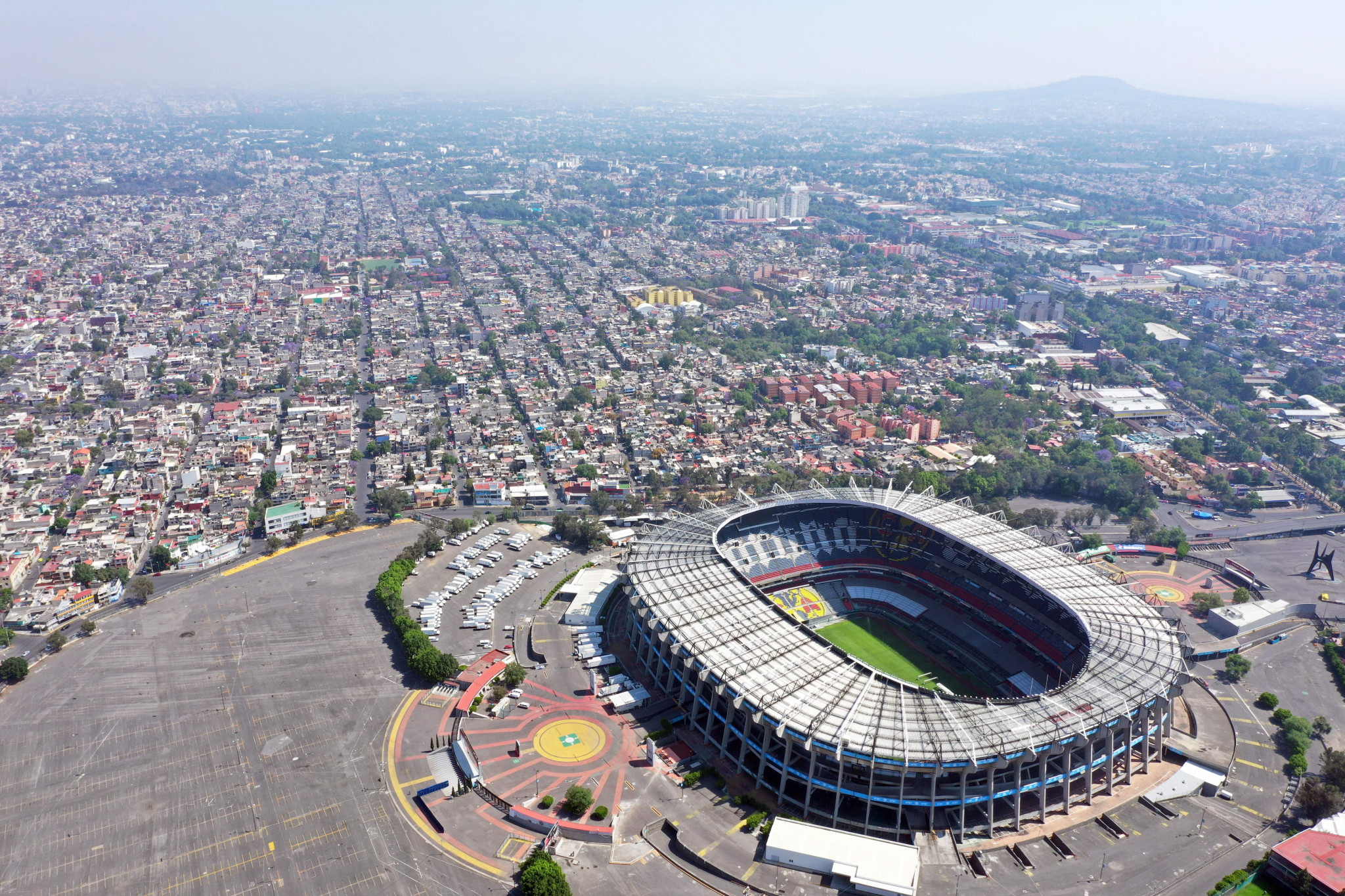As football enthusiasts eagerly anticipate the most prestigious tournament in the world, the FIFA World Cup, the excitement is not just limited to the gameplay but also on the selection of the FIFA locations for 2026. The impending event has sparked curiosity among fans worldwide, who are abuzz with discussions and speculations about where the World Cup will take place next. With the announcement of the host country for the 2026 edition, the soccer community is waiting on the edge of their seats to unravel the mystery of the upcoming FIFA locations. Join us as we delve into the potential destinations and embark on an exploratory journey to uncover where the world’s biggest football celebration will land in 2026.
Introduction to FIFA Locations 2026
As anticipation builds for the upcoming FIFA World Cup in 2026, football fans around the world are eager to discover the fifa locations 2026 where the tournament will take place. With each edition of the World Cup, the event showcases the best football talent and brings together nations in a celebration of the beautiful game.
Host Countries and Cities
The FIFA 2026 World Cup will be hosted across multiple countries, marking a significant moment in the history of the tournament. With a diverse range of locations set to host matches, fans can look forward to experiencing the unique culture and atmosphere of each host city.
The selection of host cities and stadiums is based on various criteria such as infrastructure, facilities, and football history, ensuring that the tournament is held in top-notch venues that meet FIFA’s standards.
Exciting Match Venues
From iconic stadiums to state-of-the-art arenas, the fifa locations 2026 promise to provide an unforgettable backdrop for the matches. Fans can expect to witness thrilling football action in some of the most renowned venues in the world, adding to the excitement of the tournament.
- Experience the electric atmosphere of matches in world-class stadiums
- Immerse yourself in the passion and energy of football fans from around the globe
- Explore the host cities and discover their unique blend of culture and hospitality

History of FIFA World Cup Host Countries
The FIFA World Cup has been hosted by various countries around the globe since its inception. Each host nation brings its unique culture and excitement to the tournament, making it a truly global event.
Early Host Countries
Since the first tournament in 1930, Uruguay had the privilege of hosting the inaugural FIFA World Cup. Over the years, countries like Italy, France, Brazil, and others have also hosted the prestigious event. These early hosts set the stage for the tournament’s global appeal.
As the fifa locations 2026 suggest, each new host country adds a fresh dimension to the tournament.
Continental Rotation
In recent years, FIFA has followed a policy of continental rotation for selecting host countries. This approach ensures that different regions of the world get a chance to showcase their passion for the beautiful game. Countries in Europe, Asia, Africa, and the Americas have all had the opportunity to host the World Cup.
- 2022: Qatar will be the first Middle Eastern country to host the tournament.
- 2026: The upcoming fifa locations are yet to be announced, promising an exciting new destination for football fans.
Potential Host Countries for 2026
As FIFA locations 2026 draw closer, the potential host countries have been a topic of intense speculation. While official announcements are yet to be made, several nations have emerged as front-runners based on various factors.
North America
One of the strong contenders for hosting the 2026 World Cup is a joint bid from the United States, Canada, and Mexico. This collaborative effort aims to showcase the unity and diversity of the region on a global stage.
Europe
European countries like Germany, Spain, and Italy have also expressed interest in hosting the prestigious tournament. With a rich footballing history and passionate fan base, these nations have the infrastructure and experience to successfully organize the event.
Challenges in Selecting FIFA Locations
Choosing FIFA locations for the 2026 World Cup poses several challenges. With fifa locations 2026 being the center of attention, factors like infrastructure, politics, and logistics play a crucial role in the selection process.
Infrastructure Readiness
The selected cities must have top-notch stadiums, accommodation facilities, and transportation networks to host the tournament. Ensuring that the infrastructure meets FIFA standards is a daunting task.
A strong focus on building and renovating venues is required to handle the influx of fans and teams.
Political Stability
Political unrest or conflicts in a potential host country can jeopardize the smooth conduct of the event. FIFA must carefully assess the stability of each location to avoid any disruptions during the World Cup.
Having emphasized diplomatic relationships and security measures in place is vital for a successful tournament.
Logistical Challenges
Coordinating travel, accommodations, and match schedules across multiple locations can be complex. Ensuring seamless operations and fan experiences require meticulous planning and execution.
- Managing ticket distribution
- Handling transportation between venues
- Providing adequate security measures

Infrastructure and Facilities Considerations
When it comes to hosting the FIFA World Cup in 2026, **FIFA locations 2026** need to provide top-notch infrastructure and facilities to support the event. This includes stadiums, transportation, accommodations, and more.
Stadiums
Stadiums are crucial for hosting World Cup matches. They need to be modern, well-equipped, and able to accommodate a large number of spectators. Upgrading existing stadiums or building new ones may be necessary.
Several stadiums have already been planned or are under construction in various **FIFA locations 2026**, ensuring that they meet FIFA’s stringent requirements.
Transportation
Efficient transportation is vital for fans and teams to travel between cities and stadiums. The host countries must invest in transportation infrastructure such as airports, roads, and public transportation to ensure smooth logistics.
Special transportation arrangements may be made during the tournament to handle the increased influx of visitors and participants.
Accommodations
Providing a range of accommodations, including hotels, lodges, and homestays, is essential for hosting a successful World Cup. Host cities must have sufficient lodging options to cater to the diverse needs of visitors.
Collaborations with accommodation providers and ensuring quality standards are met are critical considerations to provide a memorable experience for all attendees.
Economic Impact of Hosting FIFA World Cup
Hosting the FIFA World Cup has substantial economic impacts on the host country. The event attracts millions of visitors, leading to increased tourism revenue and expenditure in various sectors.
Boost in Tourism
The influx of tourists during the FIFA World Cup can significantly boost the host country’s tourism industry. Hotels, restaurants, and local businesses experience a surge in demand, leading to increased revenue.
Local attractions and landmarks often see a rise in visitors, creating a lasting impact even after the event is over.
Infrastructure Development
Infrastructure improvements are often undertaken in preparation for hosting the World Cup, including building or renovating stadiums, transportation systems, and accommodation facilities.
These developments not only enhance the host country’s infrastructure but also create job opportunities and stimulate economic growth.
Sustainability Efforts in FIFA Locations
As we look forward to FIFA Locations 2026, sustainability is at the core of hosting the World Cup. FIFA is committed to promoting environmentally friendly practices and reducing the carbon footprint associated with the event.
Green Stadium Initiatives
Stadiums in FIFA Locations 2026 are implementing eco-friendly measures such as solar panels, rainwater harvesting, and LED lighting to reduce energy consumption. Green initiatives are the highlight of the infrastructure development.
Carbon Neutral Transportation
Efforts are being made to promote carbon-neutral transportation options for fans and teams during the tournament. Initiatives like electric shuttles and encouraging the use of public transport contribute to reducing carbon emissions in FIFA Locations 2026.
Community Involvement and Legacy Projects
Community involvement plays a crucial role in the success of FIFA World Cup locations. Legacy projects leave a lasting impact on the hosting cities and their residents, creating a positive ripple effect for years to come.
Local Outreach Programs
Hosting FIFA World Cup 2026 will involve robust local outreach programs aimed at engaging communities in the preparation and execution of the event. These programs seek to empower residents and businesses to actively participate in the hosting process.
Organizing local events and workshops will foster a sense of unity and collaboration among diverse groups within the host cities.
Sustainable Infrastructure Development
One of the key aspects of legacy projects is the development of sustainable infrastructure. From public transportation systems to eco-friendly stadium designs, host cities are committed to leaving a positive environmental footprint post-event.
- Implementation of green building initiatives
- Integration of renewable energy sources
- Enhancement of public green spaces

Security Measures at FIFA World Cup Venues
Ensuring the safety and security of fans, players, and officials is a top priority at FIFA World Cup venues.
Surveillance Systems
State-of-the-art surveillance systems are implemented to monitor all areas of the stadium and the surrounding premises.
Security personnel are equipped with the latest technology to respond swiftly in case of any suspicious activity.
Access Control
Strict access control measures are in place to regulate entry and exit points, ensuring only authorized individuals can enter designated areas.
- Electronic ticketing systems are used to verify attendees and prevent counterfeit tickets.
- Physical barriers and checkpoints are set up to manage the flow of crowds.
Technological Innovations in Event Hosting
Hosting events like the FIFA World Cup involves the implementation of cutting-edge technological advancements to enhance the overall experience for fans, players, and organizers.
Virtual Reality (VR) Experience
One of the key technological innovations expected in FIFA locations 2026 is the integration of virtual reality technology to provide fans with an immersive experience of the matches.
Enhanced Security Systems
With safety being a top priority, event hosts are investing in state-of-the-art security systems that use AI algorithms and facial recognition for efficient crowd management.
Smart Stadiums
Smart stadiums equipped with IoT devices and 5G connectivity will revolutionize the way attendees interact with the venue, from ordering food to accessing live statistics.
Frequently Asked Questions
-
- Which country will host the FIFA World Cup in 2026?
- The FIFA World Cup in 2026 will be co-hosted by the United States, Canada, and Mexico.
-
- What cities will host the FIFA World Cup matches in 2026?
- Several cities across North America have been selected to host the matches, including New York City, Los Angeles, Mexico City, Toronto, and more.
-
- When will the FIFA World Cup 2026 take place?
- The FIFA World Cup 2026 is scheduled to take place in June and July of that year.
-
- How were the host countries for the FIFA World Cup 2026 selected?
- The host countries were selected through a bidding process where the joint bid of USA, Canada, and Mexico was chosen as the winner.
-
- Will this be the first time the FIFA World Cup is co-hosted?
- No, the 2002 FIFA World Cup was co-hosted by South Korea and Japan, and the 2026 World Cup will be the second time multiple countries host the tournament.
Exciting Times Ahead: Conclusion
In conclusion, the FIFA Locations for 2026 promise to take soccer fans on a thrilling journey around the globe. With Canada, Mexico, and the United States coming together to host this prestigious event, we can expect a truly memorable World Cup experience. The diverse landscapes, cultures, and passionate fan bases in these three countries will undoubtedly create a one-of-a-kind atmosphere for the tournament.
From the bustling cities of North America to the picturesque stadiums, the 2026 FIFA Locations are set to showcase the best that soccer has to offer. So mark your calendars, because the next World Cup is sure to be a spectacle not to be missed!

